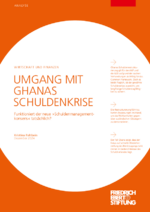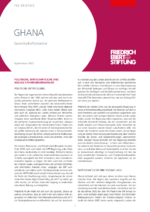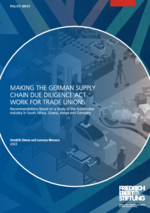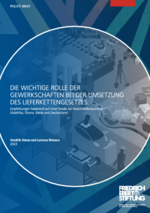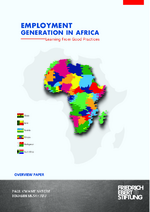Ghana
Since the reintroduction of democracy in 1992, Ghana has been regarded as a stable democracy with two dominant parties that regularly alternate in government (previously every eight years). Parliamentary and presidential elections are held every four years and are considered to be largely free and fair. The government transfers have so far been peaceful. Ghana is therefore regarded as an anchor of stability in a region characterised by violent conflicts, coups and political violence.
In recent years, Ghana has fallen into a deep economic crisis as a result of the Covid pandemic, the war in Ukraine and, to a large extent, poor governance. As a result, the state was no longer able to service its debts and had to undergo a reform programme by the International Monetary Fund (IMF) for the 17th time since independence in order to obtain new loans. The economic crisis had devastating consequences for the population: Galloping inflation for years, a decline of the national currency, high unemployment, a lack of energy supply and a sharp rise in the number of people living in poverty.
Ghana's economy remains heavily dependent on commodity exports, with insufficient value creation taking place in the country. As a result, Ghana could fall into the next economic crisis at any time due to falling commodity prices. A diversification and socio-ecological orientation of the economy is urgently needed, also in order to reach broad sections of the population and help to significantly reduce poverty in the country. Investments in value chains within the country, a massive expansion of infrastructure and, in particular, the establishment of good governance are essential if the country not only wants to prevent the next crisis, but also to utilise its potential of a young society living in peace and freedom.
The Friedrich-Ebert-Stiftung (FES) works with its local partners to consolidate democratic achievements and socially just economic development. To this end, the FES cooperates with political institutions, trade unions and civil society organisations. The FES also supports the political participation of young adults and women, who are currently underrepresented. A central pillar of the political work is the social democratic dialogue that the FES conducts with the National Democratic Congress (NDC). The FES also works closely with the Trades Union Congress (TUC), the umbrella organisation of trade unions in Ghana.
The FES has been represented in Ghana since 1969. It left the country in 1981 due to a military coup and did only return in 1988.
Find out more about our work in Ghana on the project website.
Publications
Rehbein, Kristina
Umgang mit Ghanas Schuldenkrise
Bonn, 2024
Download (PDF) (300 KB, PDF-File)
Simon, Hendrik; Monaco, Lorenza
Making the German supply chain due diligence act work for trade unions
Johannesburg, 2023
Download (PDF) (4,4 MB PDF-File)
Simon, Hendrik; Monaco, Lorenza
Die wichtige Rolle der Gewerkschaften bei der Umsetzung des Lieferkettengesetzes
Johannesburg, 2023
Download (PDF) (4,5 MB PDF-File)
Nkegbe, Paul Kwame; Musah Abu, Benjamin
Employment generation in Africa
Accra, 2023
Download (PDF) (10 MB, PDF-File)
